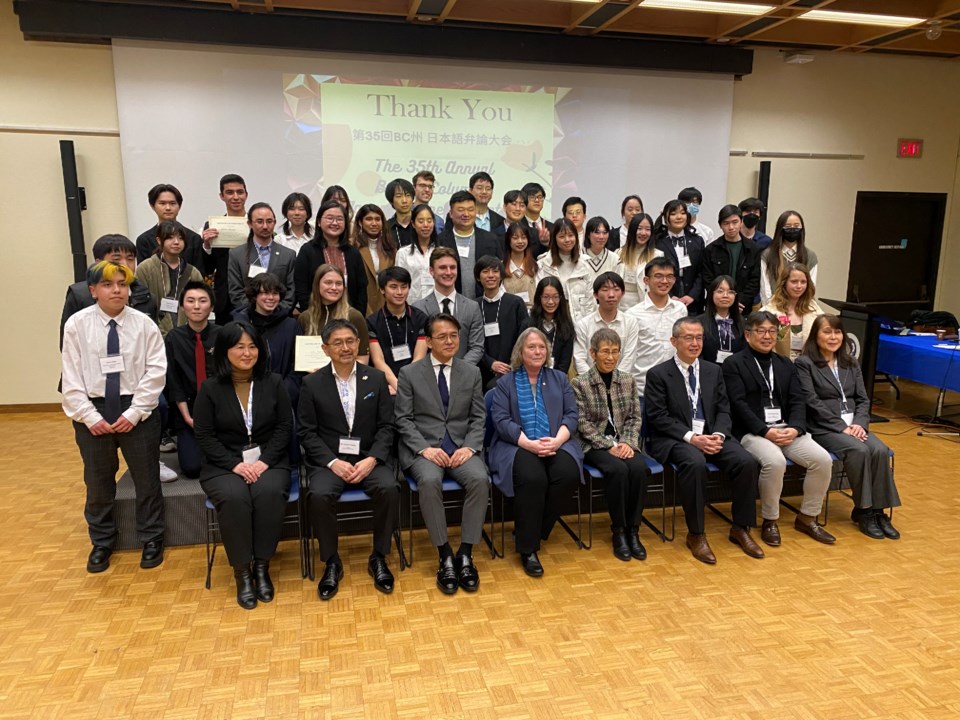Students from two Richmond high schools excelled at an annual provincial Japanese speech contest last weekend.
McMath secondary’s Kippei Shoji won first place in the open category, while Richmond secondary’s Shawn Wu, Hailan (Helen) Tan and Katelyn Makihara came third in the beginner, intermediate and open categories, respectively, in the 35th Annual British Columbia Japanese Speech Contest.
A commendation for outstanding effort was also awarded to McMath’s Lexi Lawson who competed in the intermediate category.
The annual contest is open to all B.C. and Yukon residents who speak Japanese as a foreign or second language. Although the contest is available across several provinces, B.C. is the only province with a high school division.
This year’s event saw 19 finalists speaking at UBC’s Asian Centre, which was also live-streamed online.
Wu, who explored the issues of being overly modest in his speech “Modesty and its Lies,” said he enjoyed the challenge despite it being a class requirement.
“This was my first time entering the contest and while it was a little scary, it was also exhilarating and exciting!”
Grace Ho, one of several judges for the contest and a teacher at McMath, said the turnout for Richmond students in the high school category was especially impressive as only three high schools across the province had participated in last year’s contest.
A total of 18 high school students from Richmond entered the contest, 13 of which were selected as finalists.
“I was just really excited to see such a huge number of high school students doing this again,” said Ho.
“I think it’s amazing. To be able to give a speech in your first language is difficult enough. Imagine doing it in a second, third, or fourth language.”
Not to mention the students had to speak in front of a packed live audience and on live stream, she added.
An important part of the learning journey
Ho told the Richmond News the contest was an important piece of her students’ journey to learn Japanese.
“I’m really proud of what they were able to accomplish after a few years of learning Japanese, and to actually have the speech contest as a tool … to improve their Japanese,” she said.
Speeches that impressed the judges the most, according to Ho, were those that connected personal experiences with cultural and historical topics, as well as those that discussed current social issues and challenges.
Abby Young, a McMath student, chose to speak about understanding her grandparents’ experience with Alzheimer’s.
Young told the News the most challenging part of the contest was writing her speech.
“I had a lot of trouble coming up with a topic I was willing to write about, and one which would resonate with others. And then, once I was finally able to write the speech, it was a huge time crunch to get it in in the two hours after I finished writing it,” she said.
Young, who started learning Japanese two years ago, decided to participate after hearing about it from a friend.
The contest, she added, was “a precious experience” as she was able to listen and learn from her friends and competitors.
“Sitting in the audience and hearing all the different speeches was such an insane experience — as truthfully, I don’t think I’ve ever been in a room (other than my Japanese class) with so many others who share a similar love of learning Japanese.”



